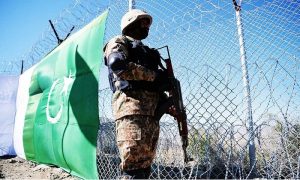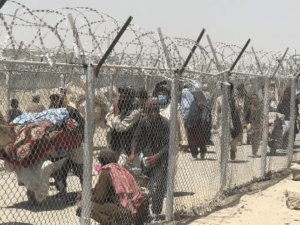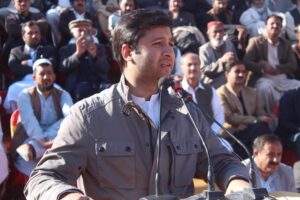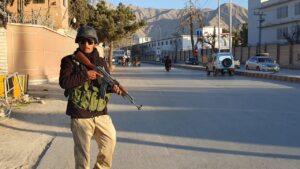Syed Ali Shah:
The Balochistan Board of Intermediate and Secondary Education (BBISE) is conducting annual matriculation examinations, and after a decade, the provincial government has abruptly launched an anti-cheating campaign. Chief Minister Mir Sarfaraz Bugti has directed administrative secretaries and bureaucrats to visit districts to monitor the exams. While eliminating cheating is a commendable initiative, the timing and approach raise concerns about its effectiveness.
Education Standards: The Bigger Issue
Before imposing strict measures, the government must analyze the actual quality of education in Balochistan, especially in far-flung districts. The reality is harsh—many schools lack basic facilities, trained teachers, and subject-specific instructors.
• Many schools in rural Balochistan have no laboratories, no scientific equipment, and no proper science or English teachers.
• According to the education department, over 7,000 schools in Balochistan have only one teacher per school, with some schools having a 1:100 or even 1:200 teacher-student ratio.
• In such conditions, how can students from remote districts compete with those studying in Quetta, where better educational resources are available?
Unfair Examination Policies
One of the biggest flaws in Balochistan’s education system is the standardized question paper policy, where students in remote areas receive the same exam papers as students in Quetta. A government official, speaking on condition of anonymity, revealed that in some districts, students sitting for matric exams were unable to read the questions, let alone answer them.
The government must ask itself: Are students being given the right academic environment before being expected to perform? This fundamental question remains unaddressed.
The Role of the Cheating Mafia
Cheating is not a recent issue—it has been a chronic problem for years, fueled by corrupt education officials and the exam mafia. A decade ago, during the tenure of Dr. Abdul Malik Baloch as Chief Minister and Sardar Raza Muhammad Bareech as Education Minister, an anti-cheating drive was launched with proper planning. At that time:
• Seminars were held to raise awareness.
• Rallies were organized to mobilize students and teachers.
• Civil society and the media were engaged to ensure transparency.
In contrast, the current campaign lacks public awareness and stakeholder engagement, making it another bureaucratic exercise rather than a genuine reform effort.
What Needs To Change ?
1. Improve School Infrastructure: The government must first provide essential facilities, including qualified teachers, science labs, and proper classrooms.
2. Reform Examination Policies: The same question paper should not be imposed across the province without considering regional education disparities.
3. Sustained Anti-Cheating Reforms: Instead of one-time crackdowns, there should be a long-term strategy that includes public awareness, strict monitoring, and policy changes.
4. Eliminate the Education Mafia: The cheating mafia must be dismantled, ensuring that marks are awarded on merit, not through bribery.
Conclusion
While the anti-cheating campaign is necessary, it cannot substitute genuine education reforms. The government must first address the deep-rooted issues in the education system before expecting students to compete fairly. Until then, Balochistan’s students will continue to suffer from an unjust and failing system, leaving the province’s future at risk.






